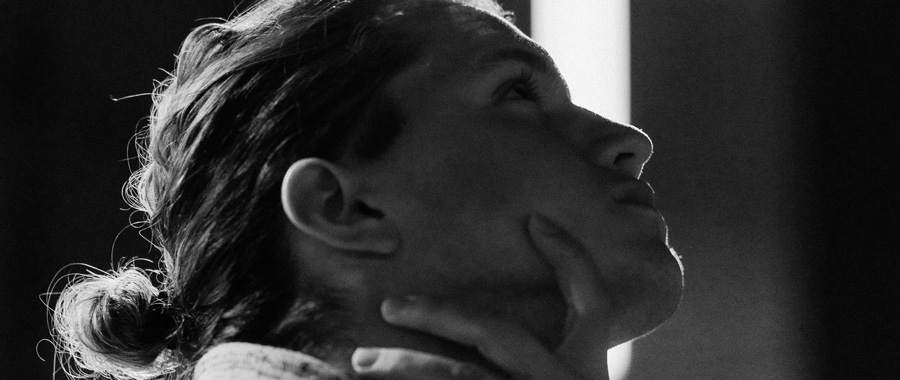The views expressed in our content reflect individual perspectives and do not represent the authoritative views of the Baha'i Faith.
Does God exist? Science, because it deals with the material world, can’t answer that question – but we can each testify to the existence of creation. Does that obvious fact imply that a Creator exists, too?
This great mystery – easily the most prominent subject in human philosophy’s long history – has prompted people to intensely explore the subject for thousands of years.
Ultimately, that ongoing discourse led most of history’s great thinkers to the conclusion that they could only address the existence of a Creator through reasoned proofs, without relying solely on the authority of scripture. Using that purely rational philosophical approach, we wound up with some very persuasive and penetrating arguments for or against the existence of a Supreme Being, generally categorized in four ways: cosmological, moral, ontological and teleological.
In this exploration of the subject, let’s stick with just one of these categories, the ontological proof of the existence of a Creator. The word ontology, the science of what actually exists and has being, comes from the Greek root words ontos, which means being; and logia, which means logic – hence, the logic of being.
Many Western philosophers, beginning with Socrates, Aristotle and Plato, addressed this big question. Later Anselm, Descartes, Liebniz and a multitude of others weighed in with their versions and suggested refinements of the ontological proof. But the legendary and influential Islamic philosopher Mulla Sadra, in his main philosophical work al-asfar al-arba‘a (Four Journeys), adduced one of the most well-known and logically consistent ontological proofs of the existence of a Creator, which he called the Argument of the Righteous. It goes like this:
- There is existence; and we cannot conceive of a more perfect existence
- By definition God is perfection personified
- Existence is one – which means that no metaphysical pluralism exists
- Existence has grades of perfection
- The scale of perfection must have a limit point, a point of greatest intensity
- That greatest intensity, by definition, is God.
It turns out, ever since Mulla Sadra, that most of the ontological proofs of the existence of a Supreme Being pivot around this subtle but powerful point involving imperfection and perfection.
After all – if something is imperfect, doesn’t it infer the existence of perfection?
If you see a rickety chair, for example, with only three legs and a broken seat, you immediately understand the chair’s imperfections. You can immediately see its obvious lack of utility as a functional chair. But you can only make that judgment because your mind contains the concept of a perfect chair, one that includes all four legs and is therefore complete, whole, and functional in every respect. In the same way, the Baha’i teachings say, the very existence of imperfection proves the existence of perfection at every level of creation:
… all created beings are limited, and this very limitation of all beings proveth the reality of the Limitless; for the existence of a limited being denoteth the existence of a Limitless One. – Abdu’l-Baha, Selections from the Writings of Abdu’l-Baha, p. 48.
At first, that may sound like an abstruse and abstract argument, but it has an undeniable internal logic:
Is it possible for the handiwork to be perfect and the craftsman imperfect? Is it possible for a painting to be a masterpiece and the painter to be deficient in his craft, notwithstanding that he is its creator? No: the painting cannot be like the painter, for otherwise it would have painted itself. And no matter how perfect the painting may be, in comparison with the painter it is utterly deficient.
Thus the contingent world is the source of deficiencies and God is the source of perfection. The very deficiencies in the contingent world testify to God’s perfections. For example, when you consider man, you observe that he is weak, and this very weakness of the creature betokens the power of One Who is Eternal and Almighty; for were it not for power, weakness could not be imagined … Without power there could be no weakness. This weakness makes it evident that there is a power in the world.
… It is certain that the entire contingent world is subject to an order and a law which it can never disobey. Even man is forced to submit to death, sleep and other conditions – that is, in certain matters he is compelled, and this very compulsion implies the existence of One Who is All-Compelling. So long as the contingent world is characterized by dependency, and so long as this dependency is one of its essential requirements, there must be One Who in His own Essence is independent of all things. – Abdu’l-Baha, Some Answered Questions, newly revised edition, pp. 6-7.
So, as the Baha’i teachings point out, the essential dualities that exist everywhere in life – weakness and strength, dependence and independence, powerlessness and might, and so on – make it obvious that the scale of perfection must culminate in what we call the Creator.
















Comments
Sign in or create an account
Continue with Googleor